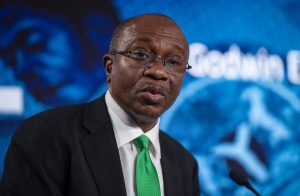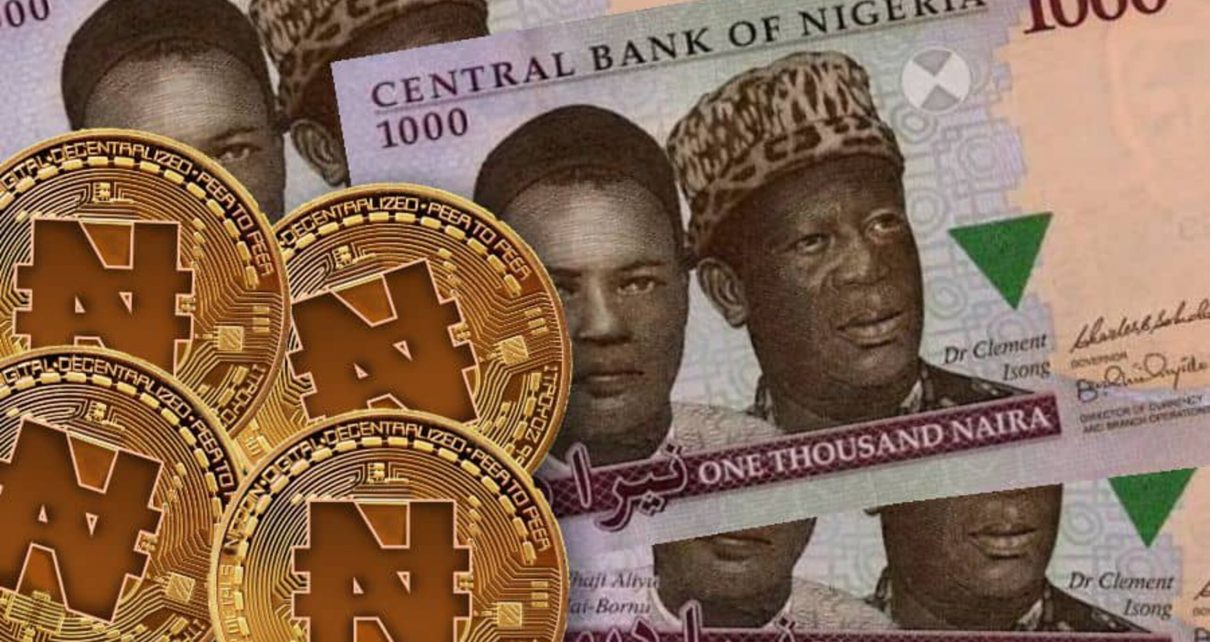Independence Day, 1st October 2021, is the day that the Central Bank of Nigeria (CBN) has set aside as the day the new digital currency will be rolled out.
According to the Director of Information Technology, Central Bank of Nigeria (CBN), Rukiya Mohammed, the apex bank has concluded plans to launch the Central Bank Digital Currency (CBDC) on October 1.
Mohammed disclosed this on Wednesday in a webinar, themed “Digital currency and the prospects of CBDC in Nigeria”, organised by the committee of e-Business in industry Heads Nigeria (CeBIH).

Mohammed said that the use of digital payment was rising while cash payment was declining both in Nigeria and globally.
She said that over 85 per cent of Central Banks worldwide were considering digital currency and so CBN was also innovative to cope with global trends.
“CBDC would contribute to macro-economic growth in the country, if people adopt more of the usage of the e-naira, it would enhance more data to formulate macroeconomic policies.
“Also, when more countries have their own digital currencies, it would increase the exchange of currency and be able to build cross border trade at a lower cost.
“Even though Nigeria has a good payment system, this would also improve Nigeria’s payments efficiency,“ she said.
She said the CBN has partnered with a lot of experts in digital currency technology providers such as MasterCard, came up with the design and would soon publish the design.
“CBN would focus on low amount payments at the introductory stage, instant settlement with low cost.
“CBDC would be legal tender with one e-naira equivalent to one naira which shows fundamental differences between CBDC and cryptocurrencies,” she said.
Also speaking, Dr Adesola Adedutan, Managing Director, First Bank Nigeria, said that the Central Bank of Nigeria CBDC was a game-changer that would provide an alternative payment system and would radically transform the payment landscape.
Adedutan, who was represented by the Banks deputy chief executive, Mr Francis Soba, said CBDC provides a platform for the government to leverage blockchain technology to maintain a centralised and institutional role over the currency.
‘’It should be noted that there are significant differences between CBDCs and cryptocurrencies,” he said.
While a digital currency is nothing but the electronic form of fiat money that is issued by governments, cryptocurrency is a non-physical currency that is issued by a private system.
A cryptocurrency is decentralised and not regulated by any governing authority and runs on blockchain technology.
That cryptocurrencies cannot be regulated, has been a source of concern for central banks around the world.
On 5th February, the CBN issued a circular addressed to banks and other financial institutions with the directive that transactions in cryptocurrencies and facilitating payment for cryptocurrency exchanges had been banned.
The CBN further instructed all banks and other financial institutions to identify individuals or entities that transact in cryptocurrency or operate cryptocurrency exchanges and close their accounts.
That CBN letter elicited varied reactions from the Nigerian public with most people expressing their reservations about the potential negative effect it could have on the country’s growing cryptocurrency market and innovation in financial technology.
Perhaps, to check the growing influence of the trade in cryptocurrencies particularly among youths who could be given to dissentient behaviour, Mrs. Mohammed announced in June 2021 that the CBN will roll out its own digital currency before the end of the year.
Justifying her position, Mohammed said the apex bank had been exploring the technology for over two years and had made tremendous progress.
She said the digital currency will help remittances and travel easier from around the world into Nigeria.
El Salvador, a country in Central America, had officially recognised Bitcoin as a form of legal tender to “drive financial inclusion.” (with NAN reports)


